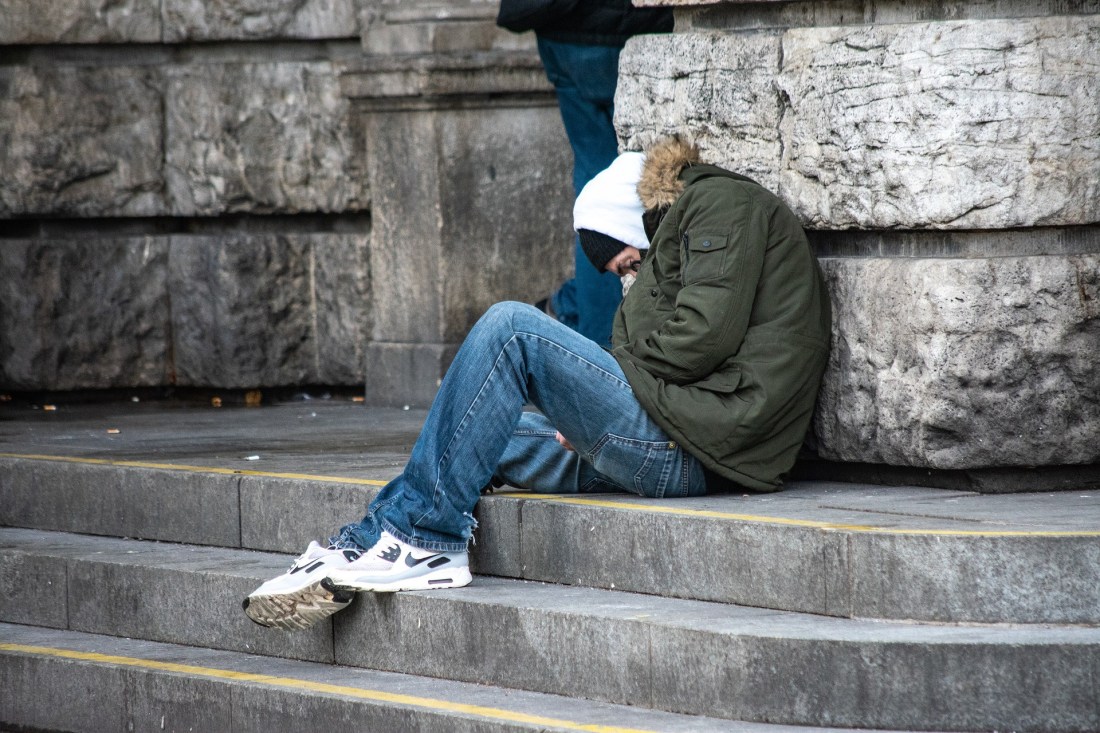It is the season of Advent, the great build-up to Christmas. For Christians the world over, this is intended to be a time of reflection, mounting joy, and gratitude. A time of celebration, as we eagerly await the day of Christ’s coming.

But how many of us who claim to be Christian remember the days after that first Christmas? How Joseph and Mary fled Israel to avoid the wrath of Herod, to save their baby from certain death? How they were left without options, and had to seek shelter in another land?
Maybe most do. But how many of us American Christians would be willing to aid them now? If a dark-skinned woman from the Middle East begged asylum, how many American Christians would turn her and her baby away? “No room at the inn,” so to speak?
The “refugee crisis” of the 2010s is unfortunately not going away. Nor is it likely to get better. In fact, it will almost certainly get worse. With a climate going haywire and a globe that is not so much warming as it is cooking, millions of people who currently live in the tropics and on the fringes of deserts will be driven from their homes by the forces of nature. War and famine will compel many millions more to leave their native lands.
They will come North and South. To more temperate places, places that have a better shot of remaining habitable in the world to come. Places with more stable governments. The so-called “West” fits this bill.
They will come. Desperate, fearful. Many will look like the woman pictured here. Brown and black, Muslims, Christians, Pagans, Hindus. The race-baiters of Europe and North America will decry the “alien invasion” and they will chant “build the wall!” They will use dogwhistles and misinformation to incite the people of “the West” against these foreigners. We’ve seen it before. We see it now. And we will see it in the years to come.
So many of these race-baiters also dare to call themselves Christians. They have the gall to claim they believe in Jesus Christ and His message to the world. They hear the gospels read aloud, books that exhort us to love one another, to abandon our wealth for the good of others, and they go to their nice suburban homes and post on Facebook about how Trump is triggering the libs and how immigration will destroy the US. They post words of unbelievable hatred, celebrating the drowning of migrants in the Mediterranean and the mass detention of Central Americans seeking asylum in the US.
How dare they. How dare they call themselves Christians. Because they would not just turn Mary away, they would laugh and celebrate if she died in the Sonoran Desert. They would not spare a second thought for a little brown baby called “Yeshua bin Yusuf.” “Shouldn’t have come,” they’d say. “Mary was a bad mother for risking her kid that way.”
You cannot call yourself a Christian if you do not see our Heavenly Queen’s visage in every woman fleeing persecution. If you cannot see the Holy Child’s face in every little kid from Syria and Yemen, who have risked their lives to try and find some peace, you are not a Christian. You may go to a building every Sunday, you may say some prayers and sing some hymns, but if you do not live out Christ’s commandments in your life, you are no Christian, but a self-righteous hypocrite. A Pharisee.
To Christians the world over, no image is holier than the Child in the manger. Mary, Theotokos, “God-Bringer,” kneeling beside Her Son; the ultimate expression of a mother’s love, and the love of God for humanity that He sent himself to be born, to die, and to be restored to life. The very essence of the universe manifesting itself as frail human flesh, to teach to us a message of love and salvation. Yet millions of Americans who hold Mary and Her Child dear to their hearts would let them perish because of the colour of their skin and the language they spoke.
So I appeal to you, fellow Christians. Set aside your false idols of race, nation, and language. Remember that Our Saviour was a poor child of brown skin, who came into this world in a stable. Remember that His selfless act on Golgotha, when He gave himself as a willing offering for the salvation of all of humanity, could never have happened if the people of Egypt had turned back Joseph and Mary. Our Saviour was a refugee. When you turn the Syrian family away, when you send a Guatemalan transwoman back to near-certain death, you have turned away Christ, and sent Mary to die. “And the King will say to them; ‘Truly I tell you; Whatsoever you have done to the least of these, My siblings, you did also to Me.'”
Open your arms, Christians of America. And open your hearts. Christ didn’t give us another choice. There is no asterisk on “love thy neighbour.” Either live as Christians, or stop calling yourselves Christians.
 I have had ADHD my whole life. It affects many aspects of my mental process, but perhaps its most insidious incarnation is paralytic perfectionism. It is a heavy burden to bear, when every success seems to set me back and into depression, because every success makes me think that this is it. This is the best I’ll ever do, it’s all downhill from here.
I have had ADHD my whole life. It affects many aspects of my mental process, but perhaps its most insidious incarnation is paralytic perfectionism. It is a heavy burden to bear, when every success seems to set me back and into depression, because every success makes me think that this is it. This is the best I’ll ever do, it’s all downhill from here.





